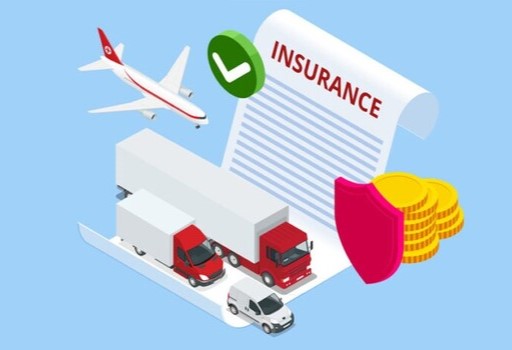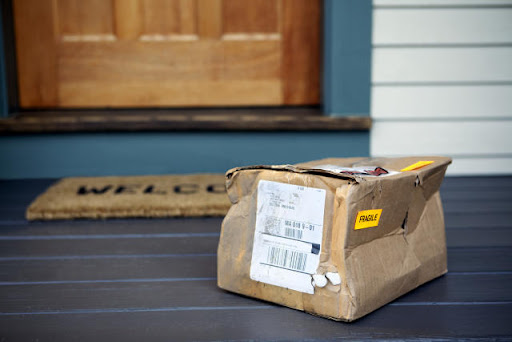From Lost to Found: A Complete Guide to Shipping Insurance

Shipping is a crucial aspect of any ecommerce business. Whether you’re selling handmade crafts or high-end electronics, getting your products safely into the hands of your customers is essential. However, shipping your products across the world comes with risks. Packages can be lost, stolen, or damaged during transit, which can lead to financial loss, unhappy customers, and added headaches for you and your team. Shipping insurance helps provide a security net for you and your customers in the unfortunate event that something goes wrong during shipping. In this article, we’ll explore everything you need to know about shipping insurance.
What is Shipping Insurance?
Shipping insurance is a type of coverage that protects your shipments from various risks during transit. When you purchase shipping insurance, you are essentially transferring the financial responsibility for any lost or damaged goods from your business to the insurance provider. In case of an incident, the insurance provider will compensate you for the value of the lost or damaged items, ensuring that your business doesn't suffer a significant financial setback. Most reputable carriers will offer default insurance upto some limit.
The Need for Shipping Insurance?
There are four main reasons why every online business should consider insuring their shipments when it makes sense..
1. Protecting Your Investment
Ecommerce businesses often invest significant resources in purchasing or producing products. Shipping insurance ensures that your investment is protected, and you won't incur losses if something goes wrong during transit.

Damaged Shipment
2. Customer Trust
When customers make a purchase from your online store, they trust that their items will arrive in good condition and on time. If a package is lost or arrives damaged, it can erode trust and damage your brand's reputation. Shipping insurance allows you to reassure customers that their purchases are protected.
3. Cost Savings
While shipping insurance comes with a cost, it can save you money in the long run. Without insurance, you'd have to bear the full financial burden of lost or damaged items. With insurance, you can recover some or all of the value, minimizing your losses.
4. Peace of Mind
Running an ecommerce business can be stressful, and worrying about the safety of your shipments is an added concern. Shipping insurance provides peace of mind, knowing you have that safety net in place.
To Insure or Not to Insure
Determining whether you should insure packages based on value alone involves careful consideration. For high-value items, like electronics or luxury goods, encouraging insurance often makes sense to safeguard against potential losses due to damage, loss, or theft during transit. Another route you can go is pre-determining which items need to have insurance, and adjusting the price accordingly, or paying for it entirely to take the responsibility off of your customers. For lower-value items, the cost of insurance might outweigh the potential losses, and it may be more cost-effective to rely on the carrier's liability coverage. Additionally, businesses have to think strategically about how to offer insurance to their customers. Bundling insurance into the product price, providing it as an optional add-on during checkout, or offering it as a standard addition on high-value items are all viable options and can all be offered.
Balancing coverage and cost-effectiveness is key to making the right choice for both the business and its customers.
Types of Shipping Insurance
There are various types of shipping insurance available to ecommerce businesses:
1. Carrier Insurance
Many leading shipping carriers, such as USPS, FedEx and UPS, offer their own shipping insurance options in addition to the default coverage they already provide, which in most cases is limited to $100 or $150. These policies cover shipments while they are in the carrier's custody. Carrier insurance is convenient as it can be purchased directly through the shipping platform or carrier site, but it may have limitations and exclusions.
2. Third-Party Insurance
Third-party insurance providers specialize in shipping insurance and often offer more comprehensive coverage and higher limits than carrier insurance. These policies can be customized to suit your specific needs, and you can shop around for the best rates and coverage options. Most shipping platforms offer third-party insurance directly, or their own branded insurance through a third-party insurance provider. These are generally significantly less expensive than carrier insurance, often by as much as 50 to 60%.
3. Self-Insured
Some ecommerce businesses choose to self-insure, meaning they set aside a portion of their revenue to cover potential shipping losses beyond the default carrier provided insurance. The decision to pay for non-insured shipment that incurs loss or damage is then up to the business, especially if the option to insure was offered to the customer. While this approach offers flexibility, it can be risky if your business experiences a high volume of lost or damaged shipments or if you ship expensive products.
How to Choose the Right Shipping Insurance
Selecting the right shipping insurance for your ecommerce business involves careful consideration:
1. Assess Your Risk
Evaluate the types of products you sell, their value, and the shipping methods you use. Some products are more prone to damage or theft, and certain carriers may have a better track record than others. Understanding your specific risks will help you choose appropriate coverage.
2. Compare Providers
If you opt for third-party insurance, compare multiple providers to find the best coverage and rates. Look for providers that offer flexible policies, excellent customer service, and a claims process that suits your needs.
3. Read the Fine Print
Before purchasing any insurance policy, carefully read the terms and conditions, including coverage limits, deductibles, and exclusions. Make sure you fully understand what is and isn't covered.
4. Integrate with Your Ecommerce Platform
Many ecommerce platforms and shipping software offer integration with shipping insurance providers, streamlining the process of purchasing and managing insurance for your shipments.
How to Make a Shipping Insurance Claim
In the unfortunate event that you need to file a shipping insurance claim, follow these steps:
Document the Damage or Loss: Take clear photos of the damaged items and any visible damage to the packaging. Keep all relevant documentation, such as invoices and shipping labels.
Notify the Carrier or Insurer: Contact the shipping carrier or insurance provider as soon as possible to report the issue. Provide all necessary information and follow their instructions for filing a claim.
Complete the Claims Process: Each provider will have its own claims process, which may involve submitting forms and additional documentation. Be thorough and prompt in providing the required information.
Keep Records: Maintain records of all communication and documents related to your claim. This will be crucial in case of any disputes or delays.
Follow Up: Stay in touch with the carrier or insurer to track the progress of your claim. Be patient, as it may take some time to resolve the claim.
Shipping insurance is a valuable tool for protecting your business from the potential financial losses associated with damaged, lost, or stolen shipments. While it does come at a cost, the peace of mind and protection it provides are well worth the investment. By carefully assessing your risks, comparing insurance providers, and understanding the claims process, you can ensure that your ecommerce business is well-prepared to navigate the challenges of shipping in the online marketplace.
About OrderCup
OrderCup is a comprehensive global multi-channel, multi-carrier shipping platform that streamlines your order management and shipping and provides built-in discounted shipping to save you time and money! We provide seamless integration with over 40 leading ecommerce platforms and shipping carriers (such as Canada Post, USPS, UPS and FedEx), competitive shipping and insurance rates, a wide range of delivery options, reliable tracking capabilities, returns, analytics and more. Our exceptional customer service and our track record of reliability make us a trusted partner for businesses of all sizes. Sign up today to experience the OrderCup difference and take your shipping and fulfillment to the next level.